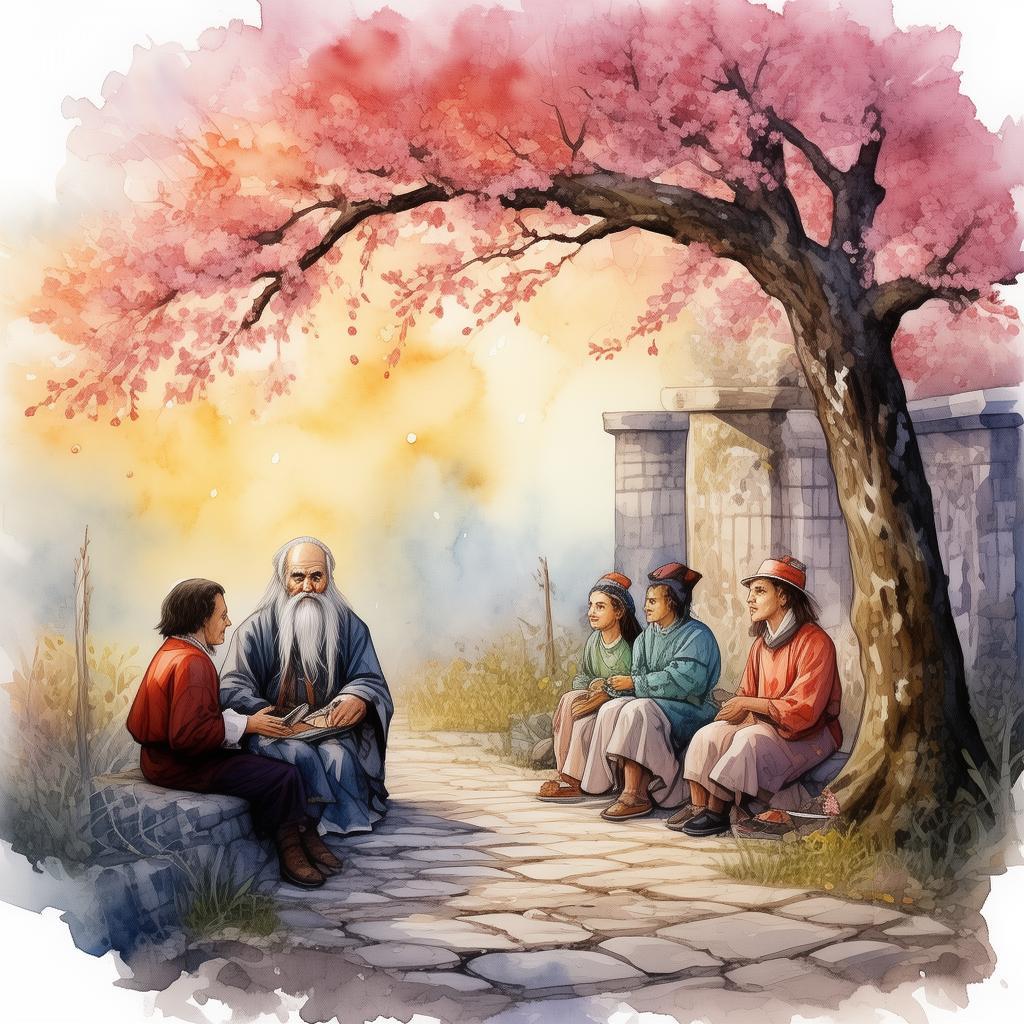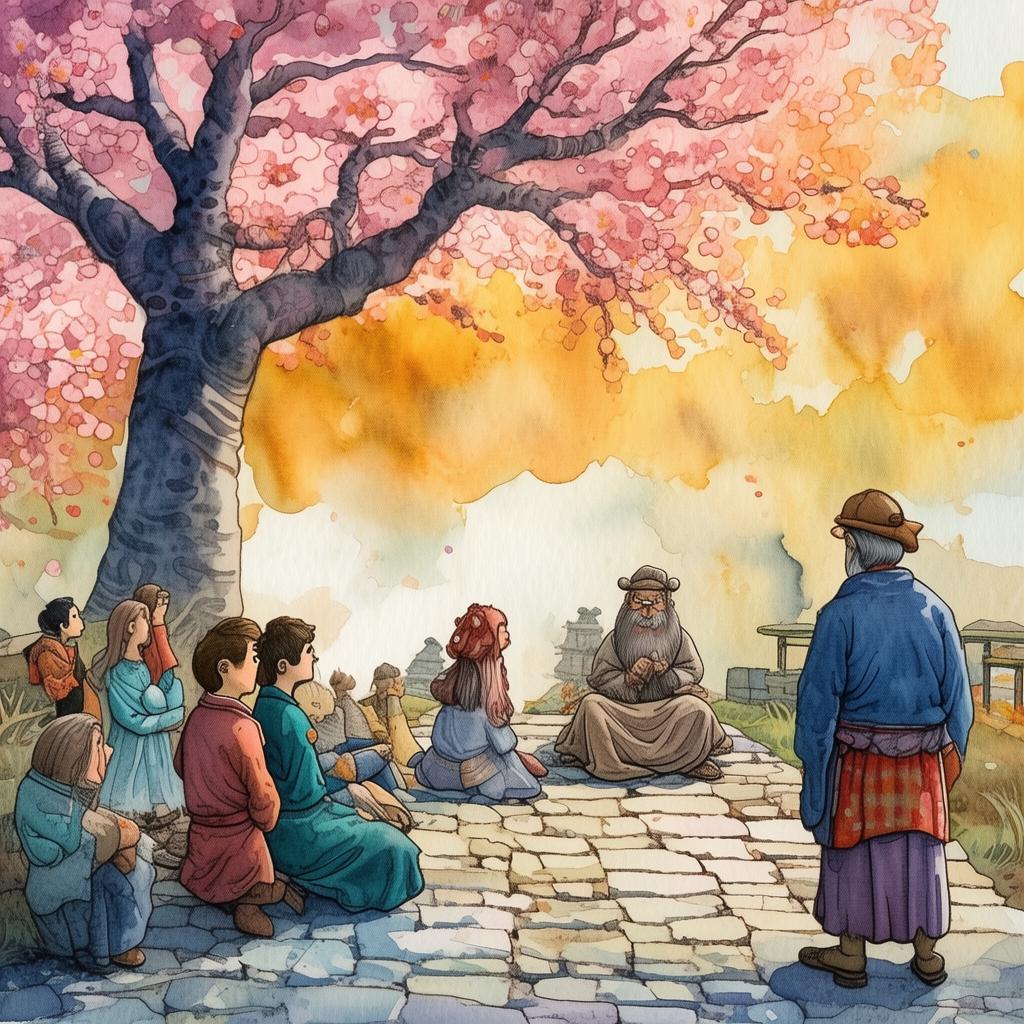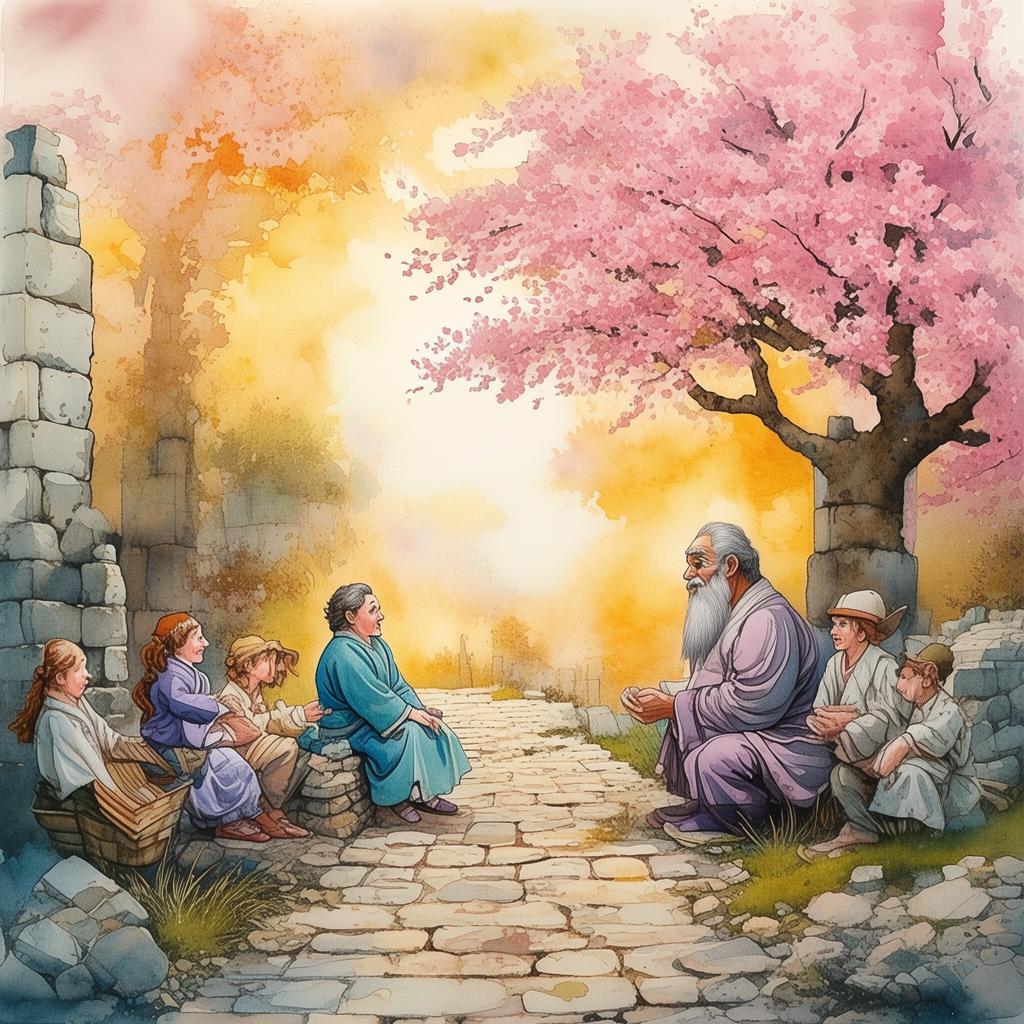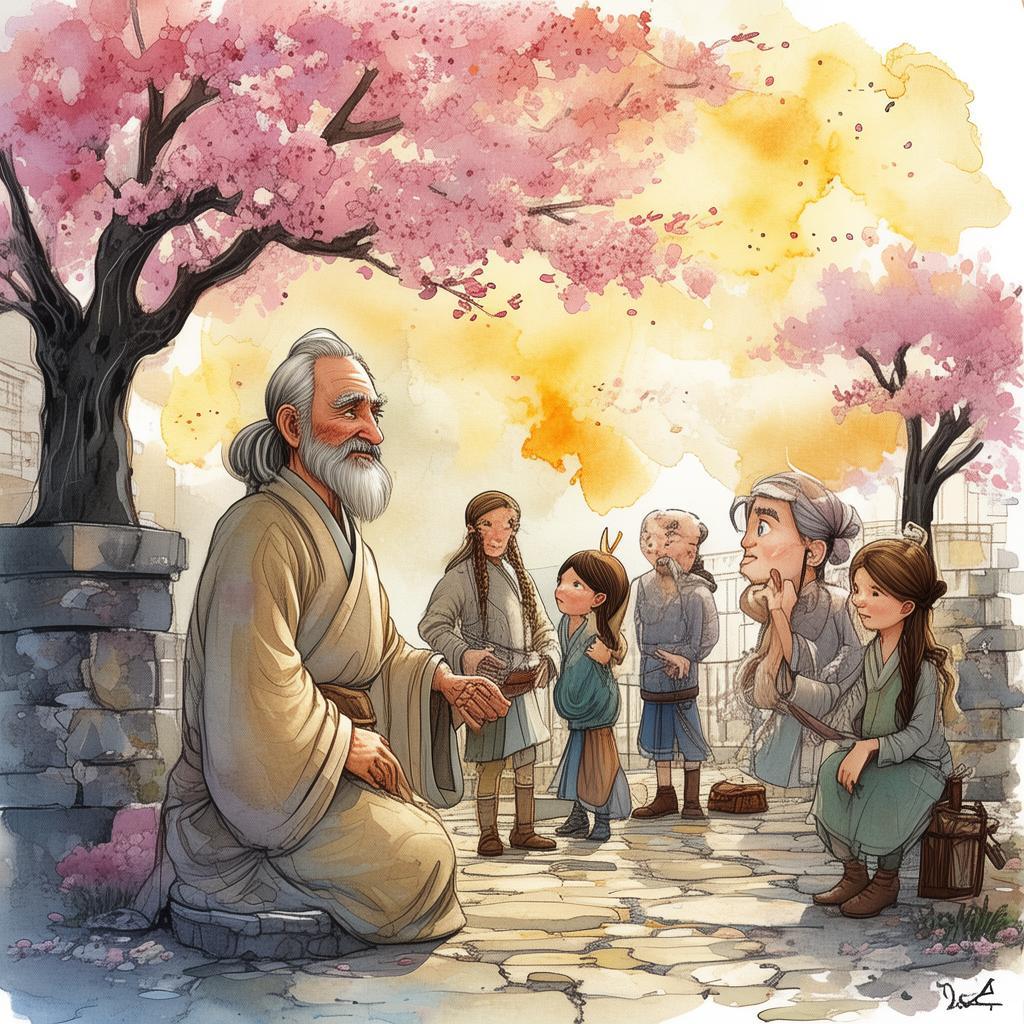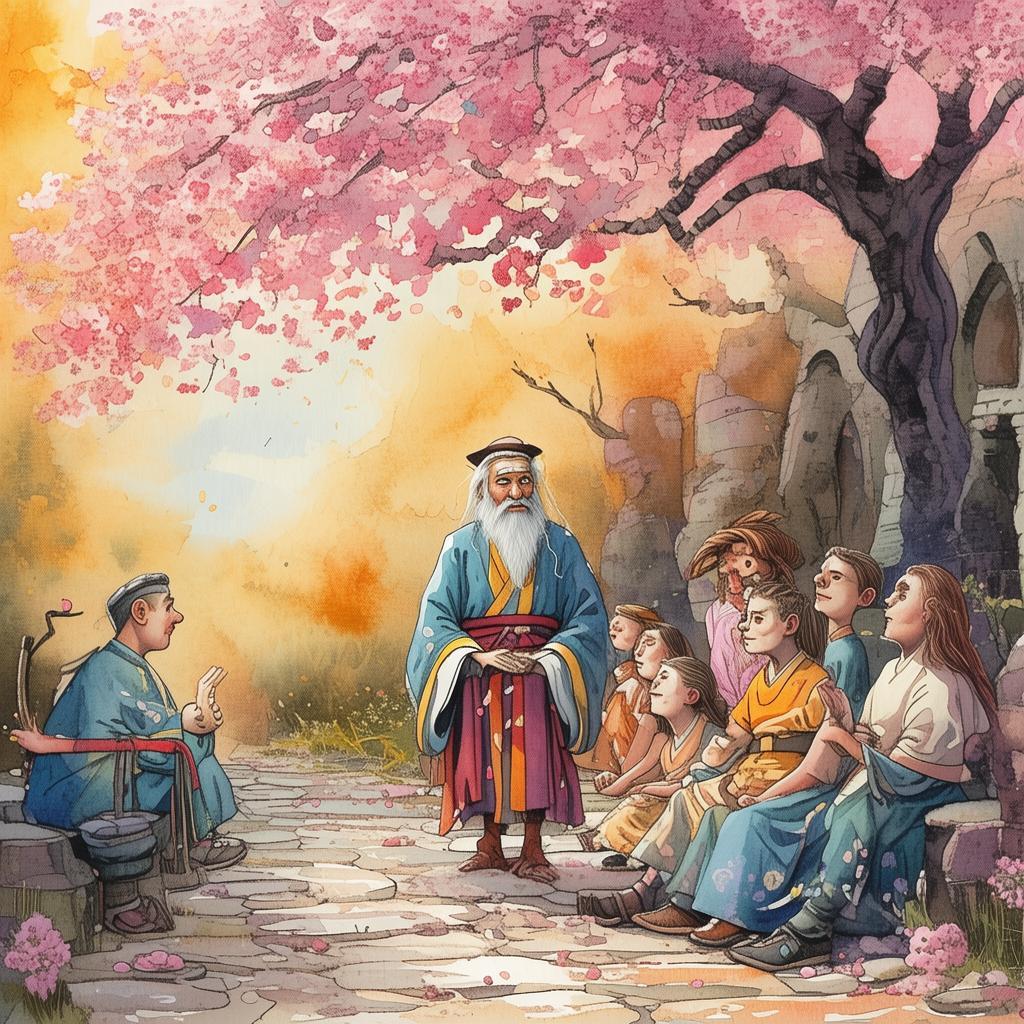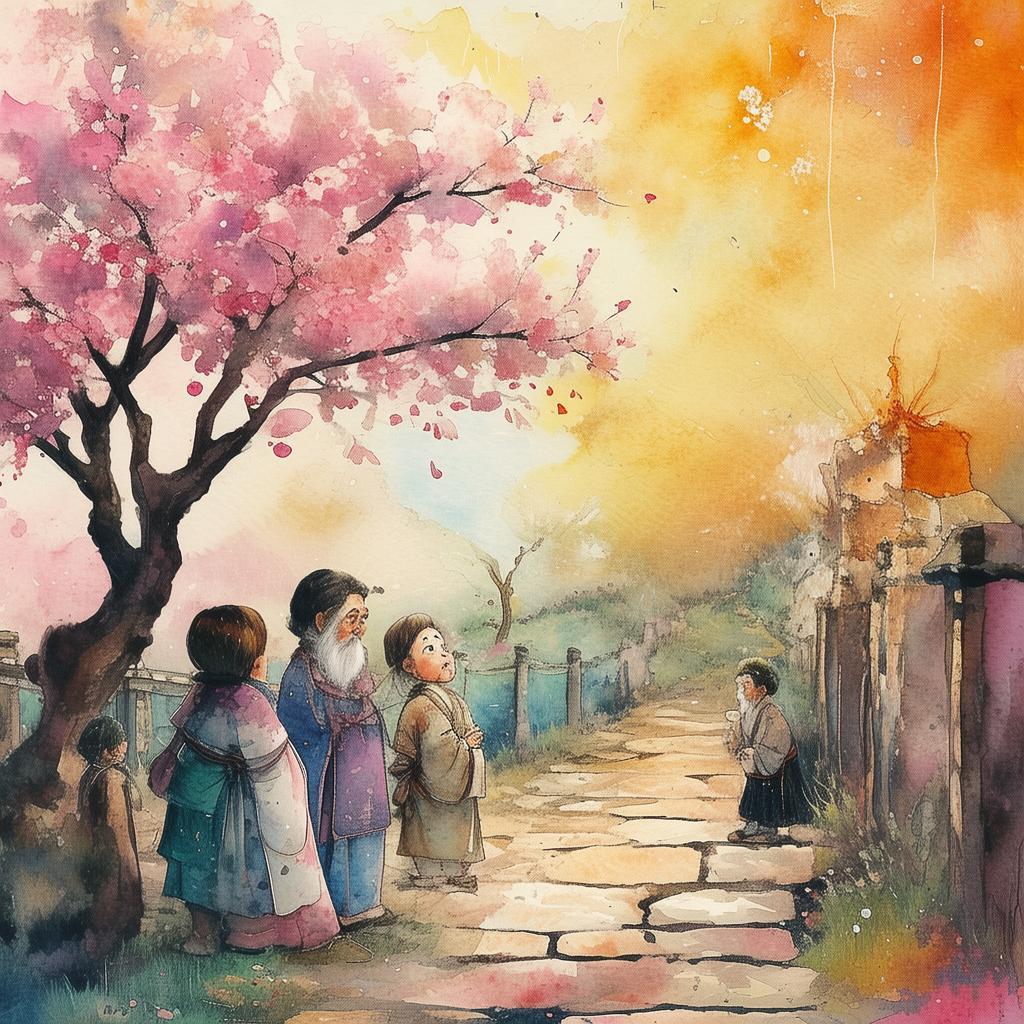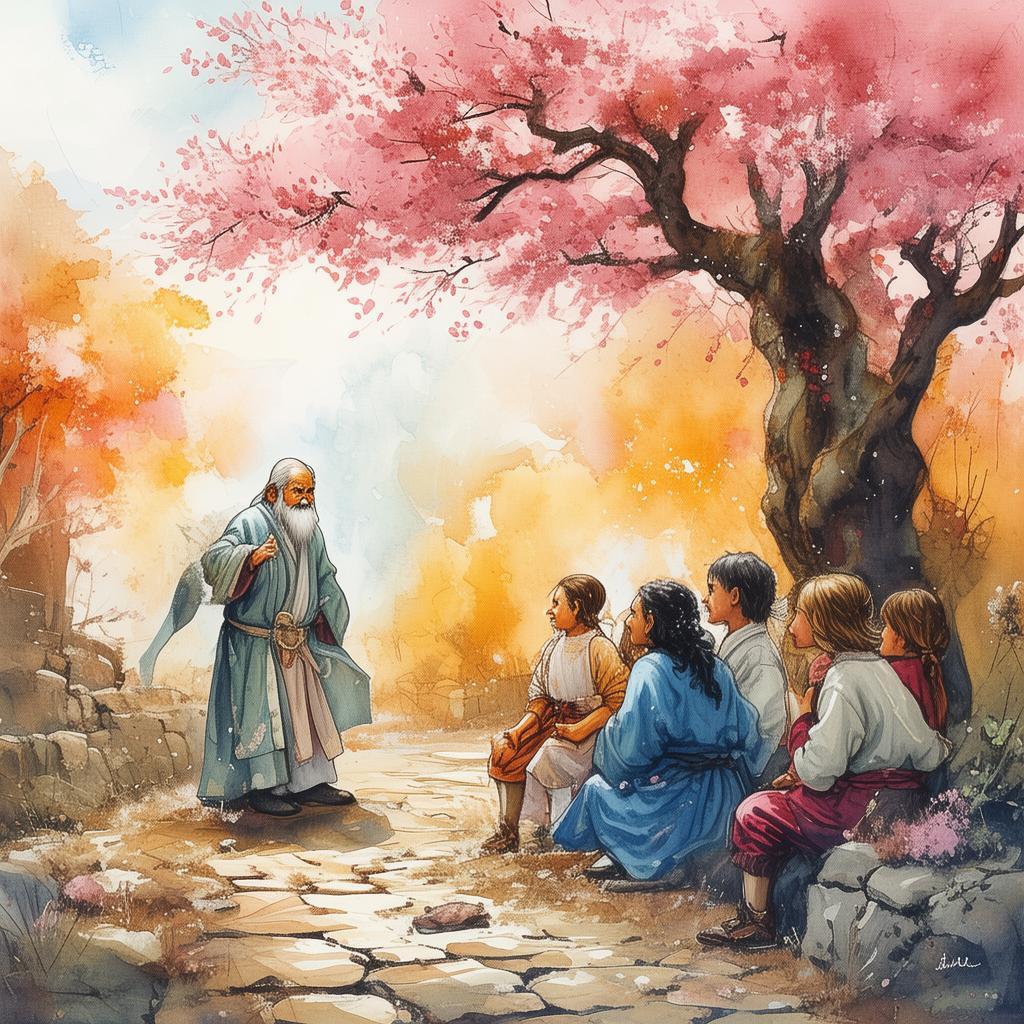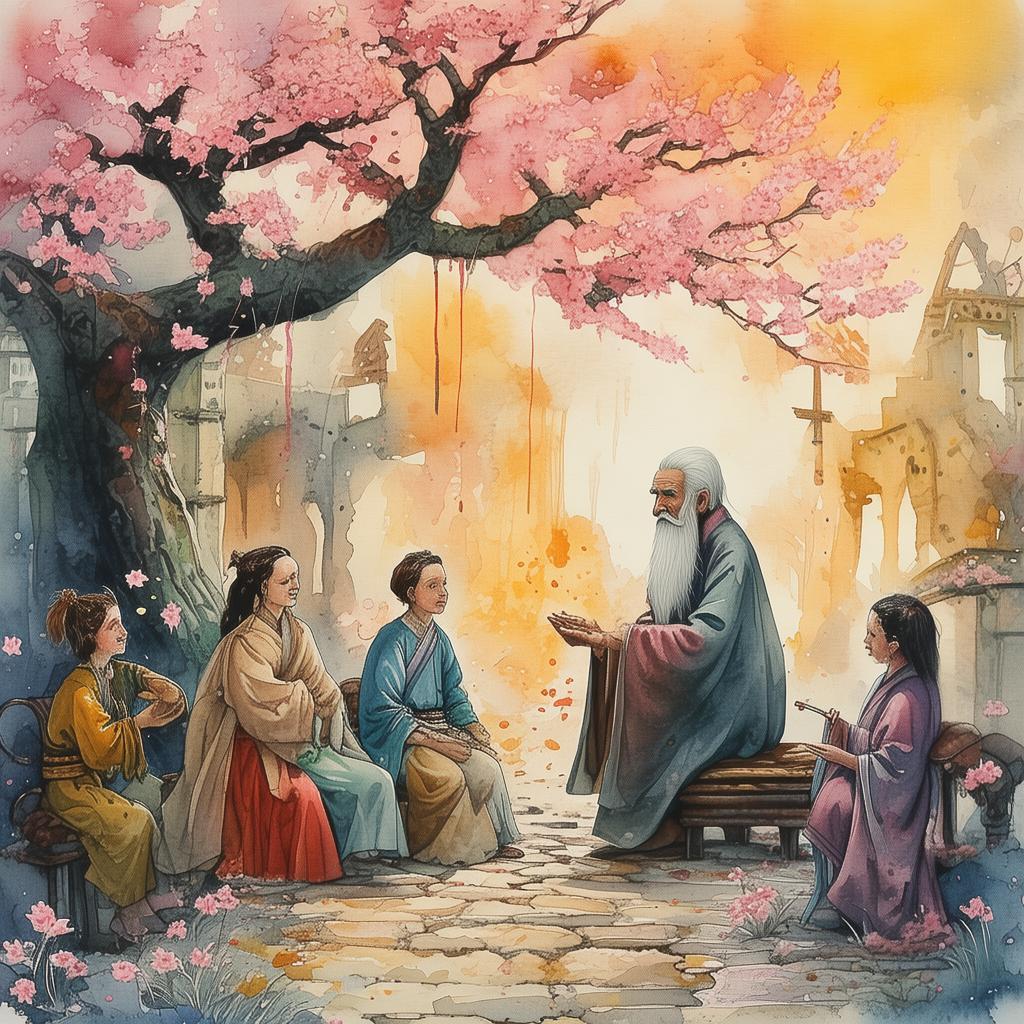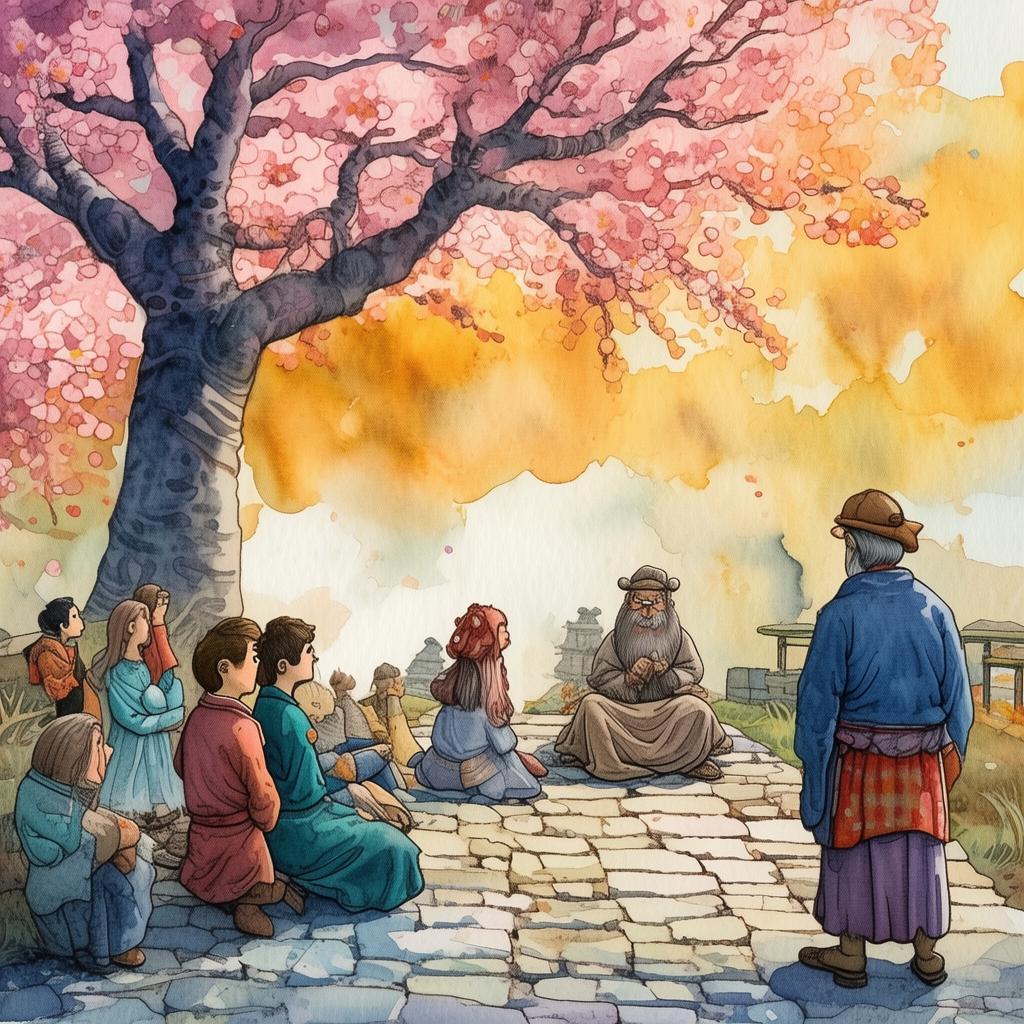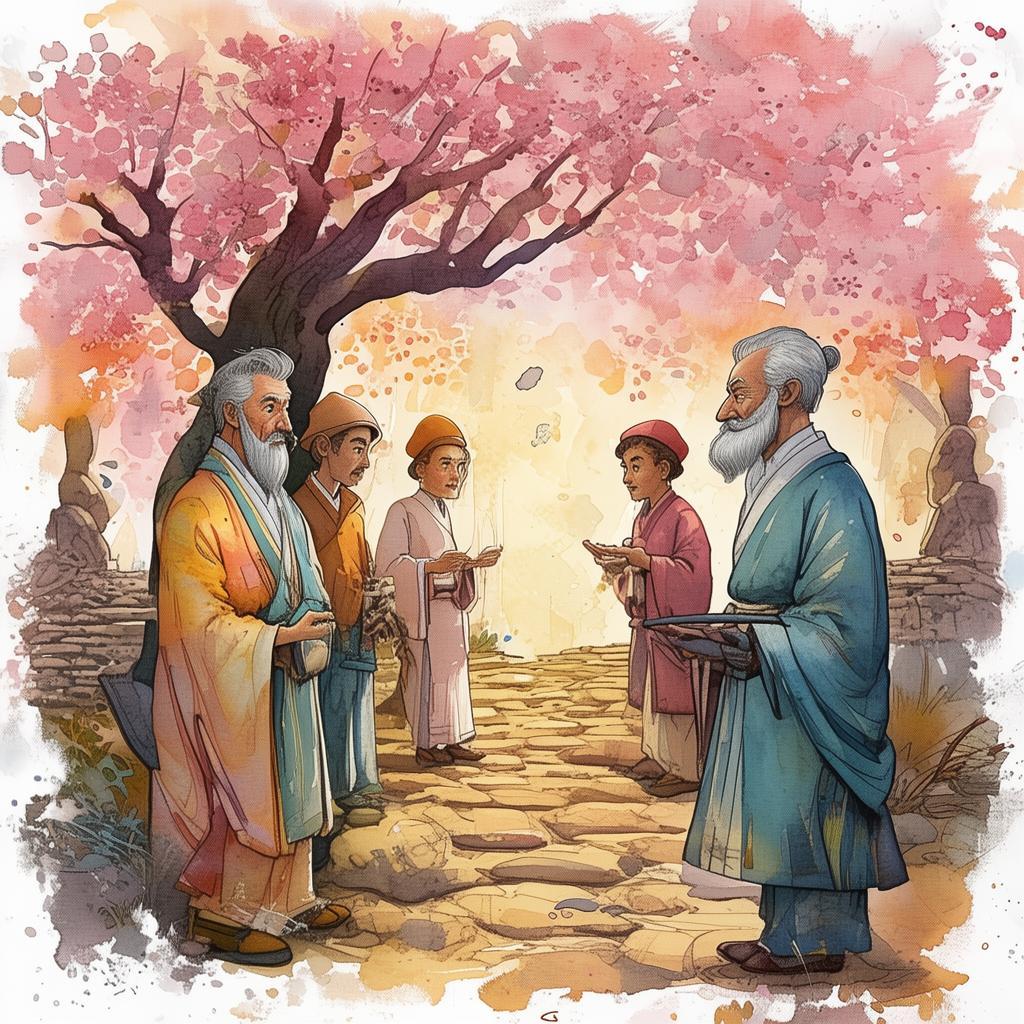The Full Granary's Paradox: A Tale of Wealth and Wisdom
In the heart of a lush, verdant valley lay the village of Long Grain, a place where the soil was fertile and the harvests bountiful. The villagers were known far and wide for their abundant crops, and their granaries were always full to the brim. It was a time of plenty, and the people of Long Grain lived in harmony, their spirits lifted by the sight of the full granaries that lined the village streets.
Among the villagers was a young farmer named Li. He was known for his hard work and dedication, and his granary was the most full of all. Li's granary was a marvel to behold, with its towering walls of golden grain, a testament to his success. But Li was not a man who reveled in his wealth. He was a man of simple tastes, content with the basics of life.
One day, as Li stood before his full granary, he felt a strange unease. The granary was a symbol of his success, but it also felt like a burden. He had worked tirelessly to fill it, and now he wondered what he should do with all the grain. Should he sell it, or should he keep it for himself and his family?
Li's friend, an old sage named Wang, noticed his contemplation. "Li, my friend," Wang said, "the full granary is a paradox. It is a symbol of wealth, but it also brings with it a dilemma."
Li looked at Wang, puzzled. "A dilemma? How so?"
Wang chuckled softly. "The paradox lies in the fact that while the granary is full, it is also empty. It is full of grain, but it is empty of purpose. The grain will rot if left unused, and the granary will become a burden. The true wealth lies not in the granary, but in the wisdom to use it wisely."
Li pondered Wang's words. He had never thought of his granary in that way. "But what should I do with it?" he asked.
Wang thought for a moment before answering. "You should share it with those in need. The grain is meant to nourish, not to rot. And in sharing it, you will find true wealth, not in the granary, but in the hearts of those you help."
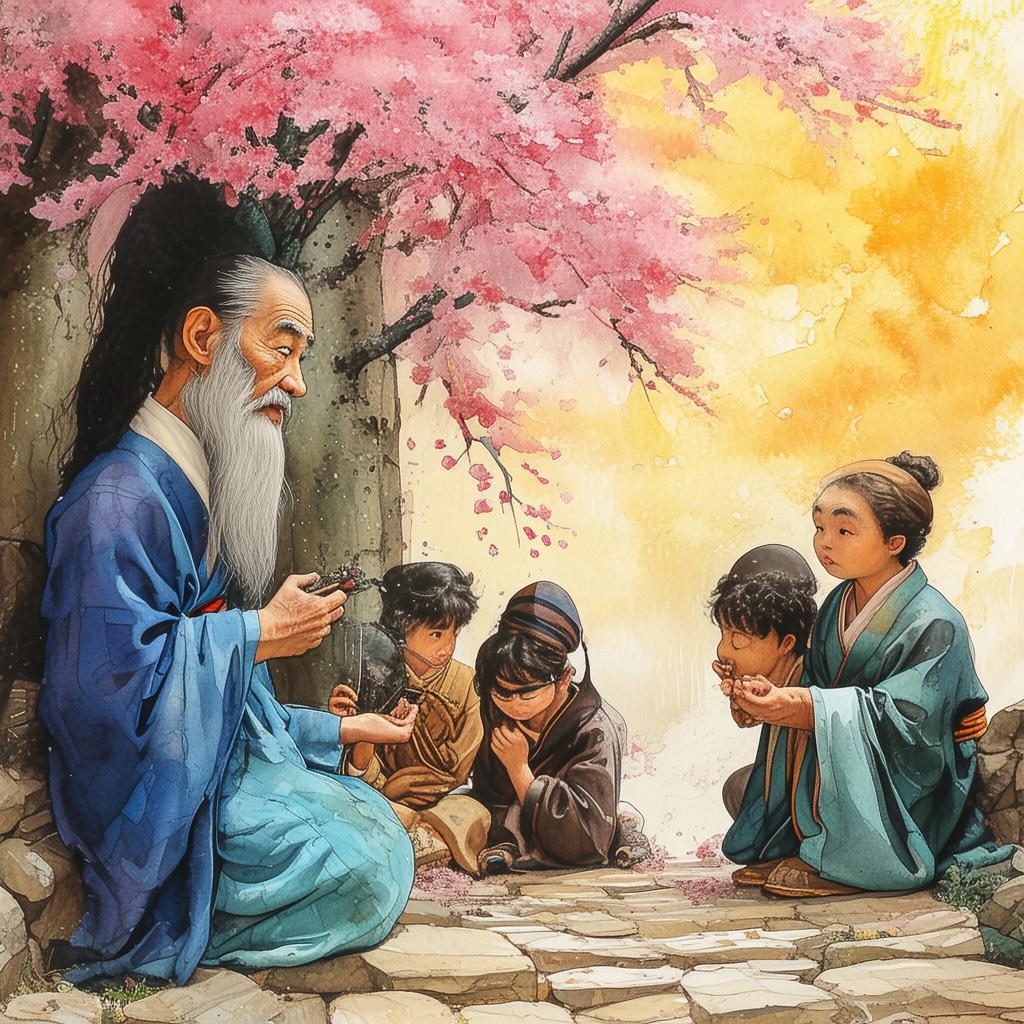
Li nodded, understanding dawning on him. He decided to follow Wang's advice. He began to distribute the grain to the poor and the hungry, sharing his abundance with those less fortunate. The villagers were grateful, and Li's reputation grew even stronger.
As the seasons passed, Li's granary began to empty. But instead of feeling a sense of loss, Li felt a sense of fulfillment. He realized that the true wealth was not in the grain, but in the good he had done with it.
One day, as Li stood once again before his granary, which was now nearly empty, he smiled. "Wang was right," he said to himself. "The full granary's paradox is not about the grain, but about the wisdom to use it for the greater good."
And so, Li continued to live a life of simplicity and generosity, knowing that true wealth was not measured in the granary, but in the hearts of those he touched.
The tale of Li and the full granary spread throughout the village, and soon beyond its borders. It became a story of wisdom, of the paradox of abundance, and of the true value of wealth. And in the end, it was not the granary that defined Li, but the legacy of kindness and compassion he left behind.
The Full Granary's Paradox: A Tale of Wealth and Wisdom taught the villagers and the world that true prosperity is not measured in the quantity of grain stored, but in the quality of life shared.
✨ Original Statement ✨
All articles published on this website (including but not limited to text, images, videos, and other content) are original or authorized for reposting and are protected by relevant laws. Without the explicit written permission of this website, no individual or organization may copy, modify, repost, or use the content for commercial purposes.
If you need to quote or cooperate, please contact this site for authorization. We reserve the right to pursue legal responsibility for any unauthorized use.
Hereby declared.
